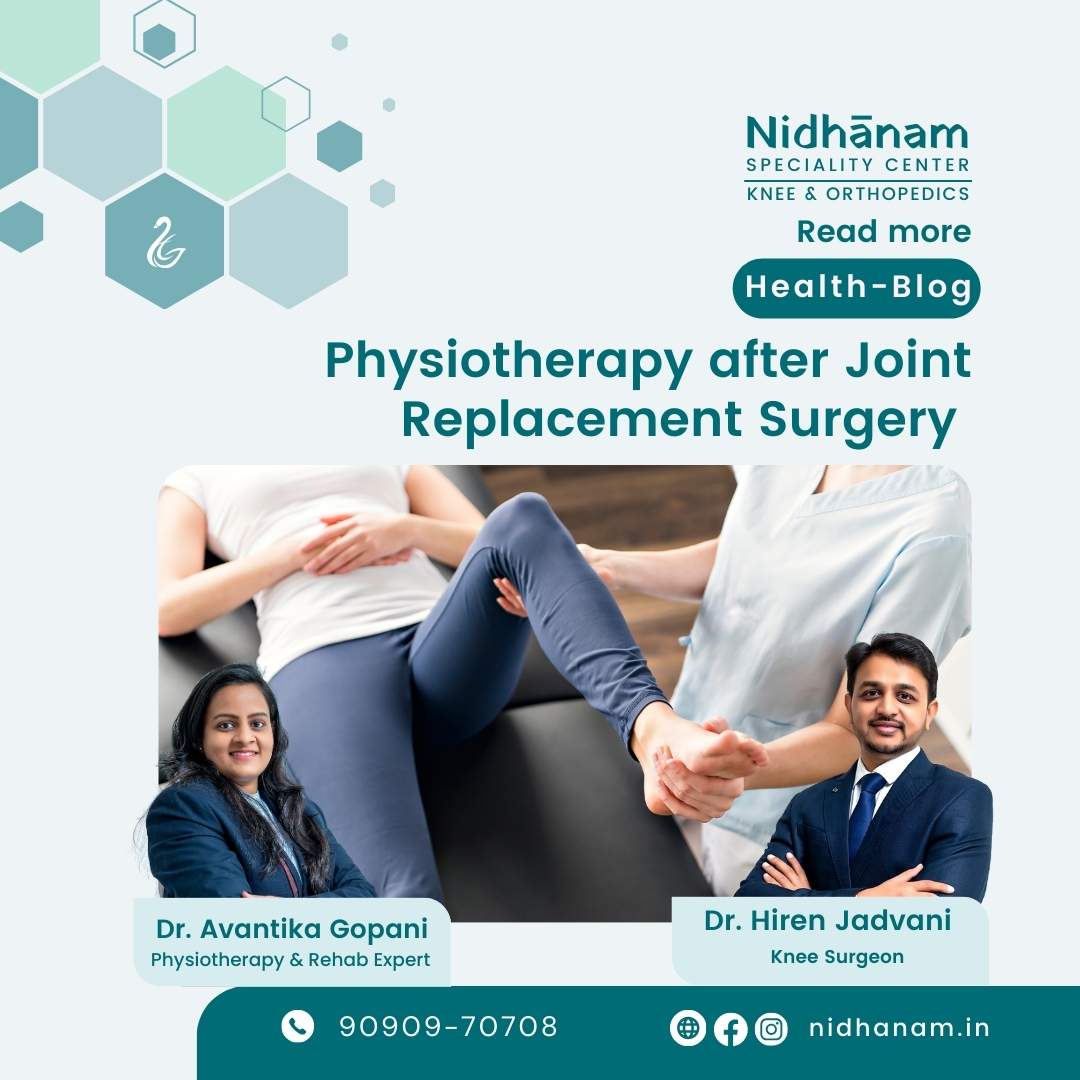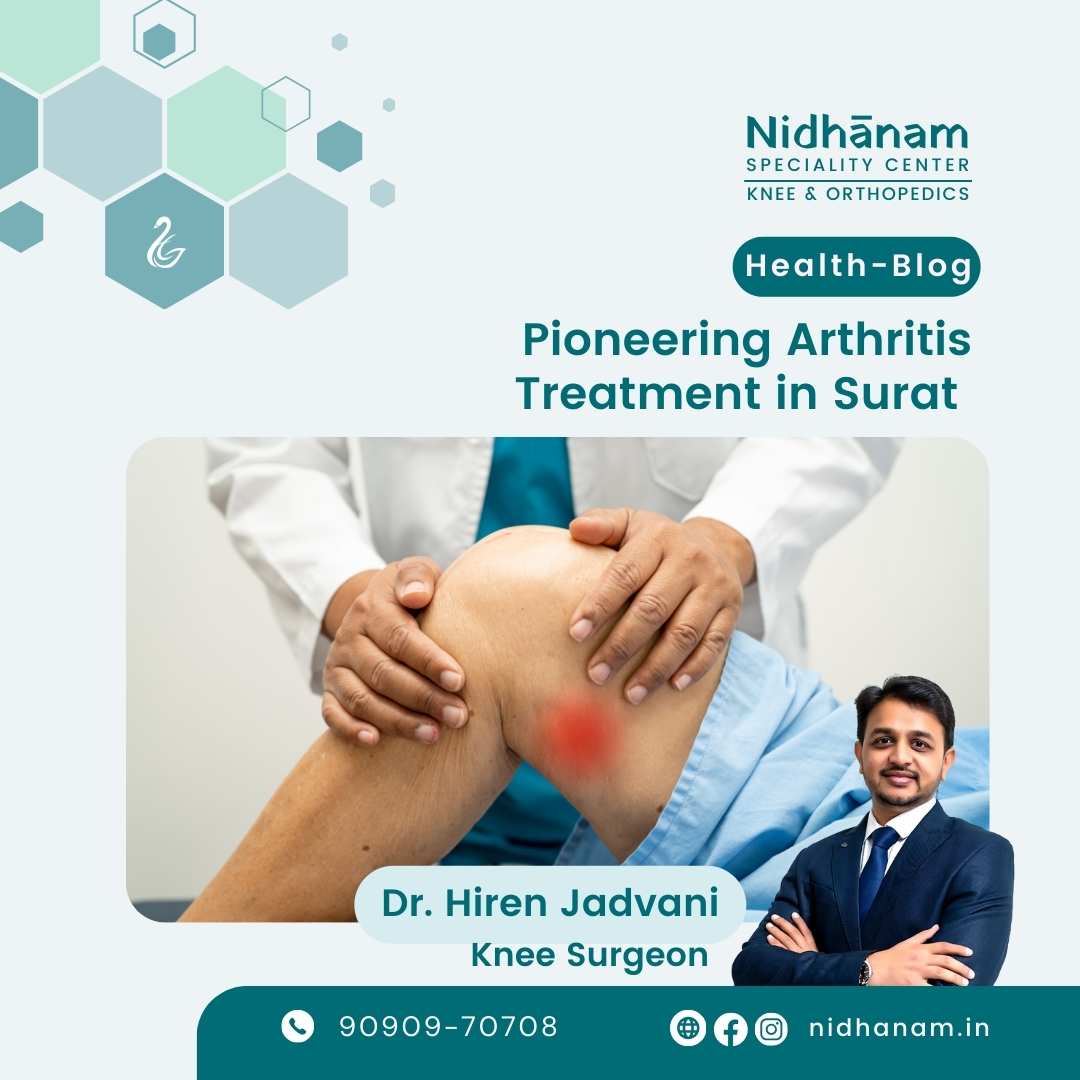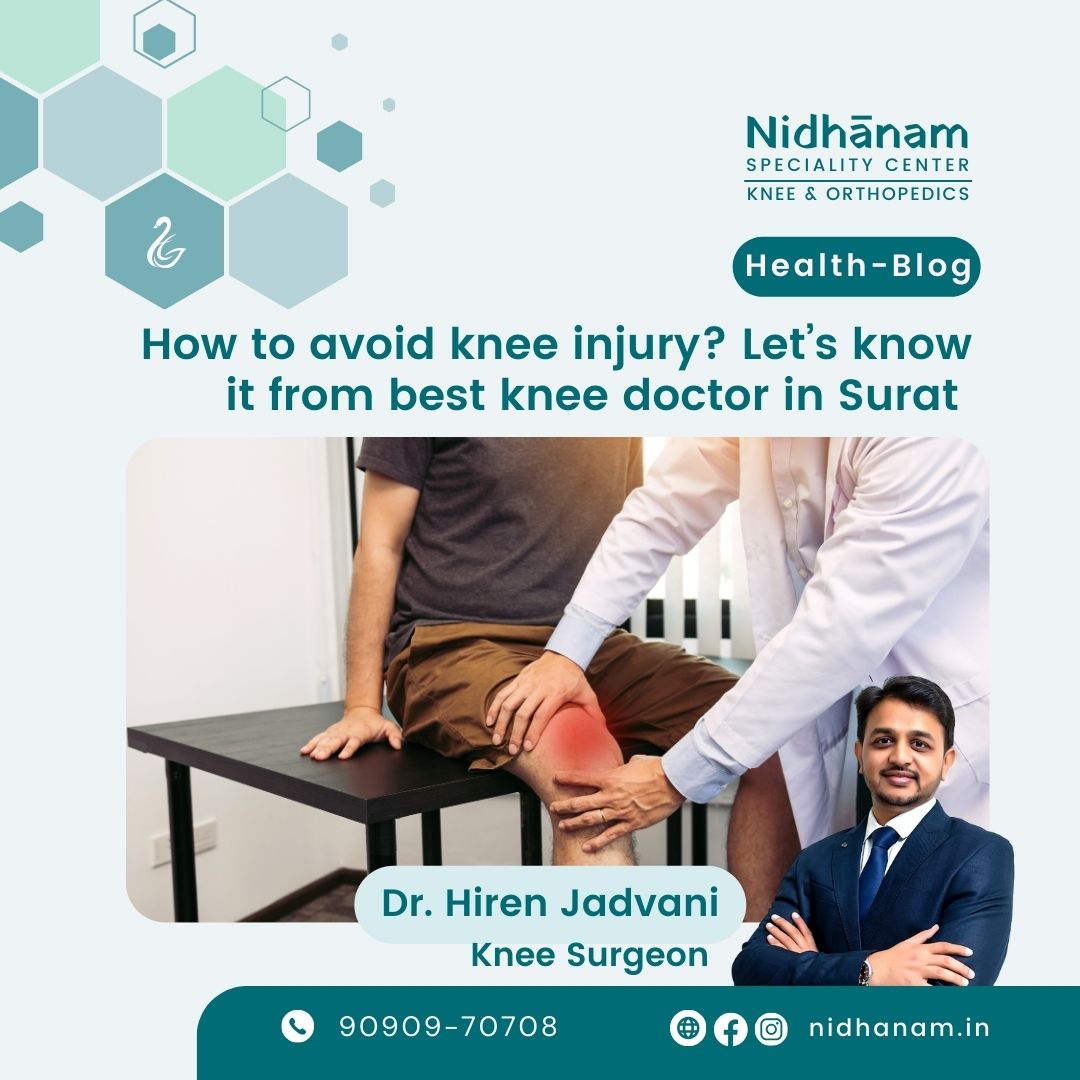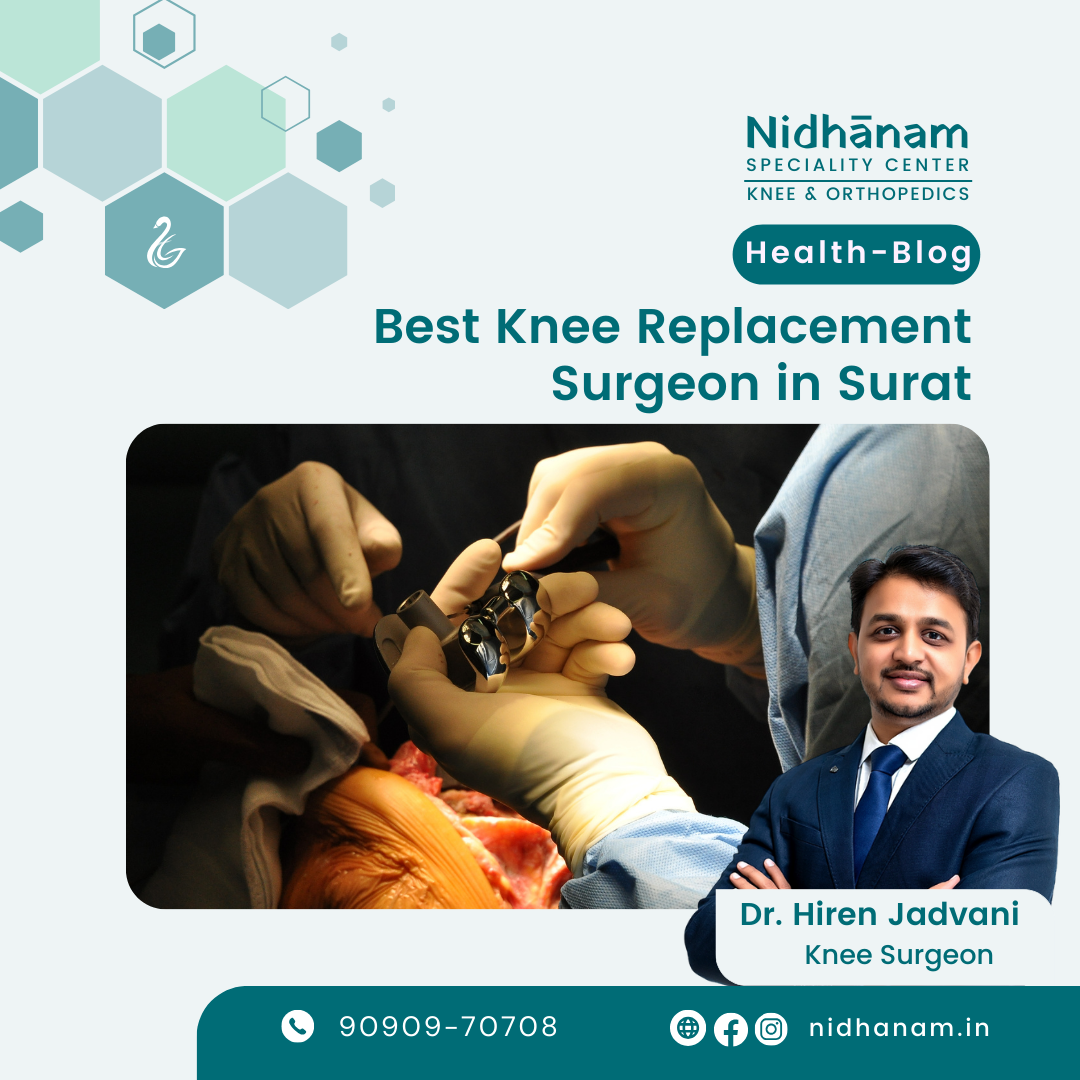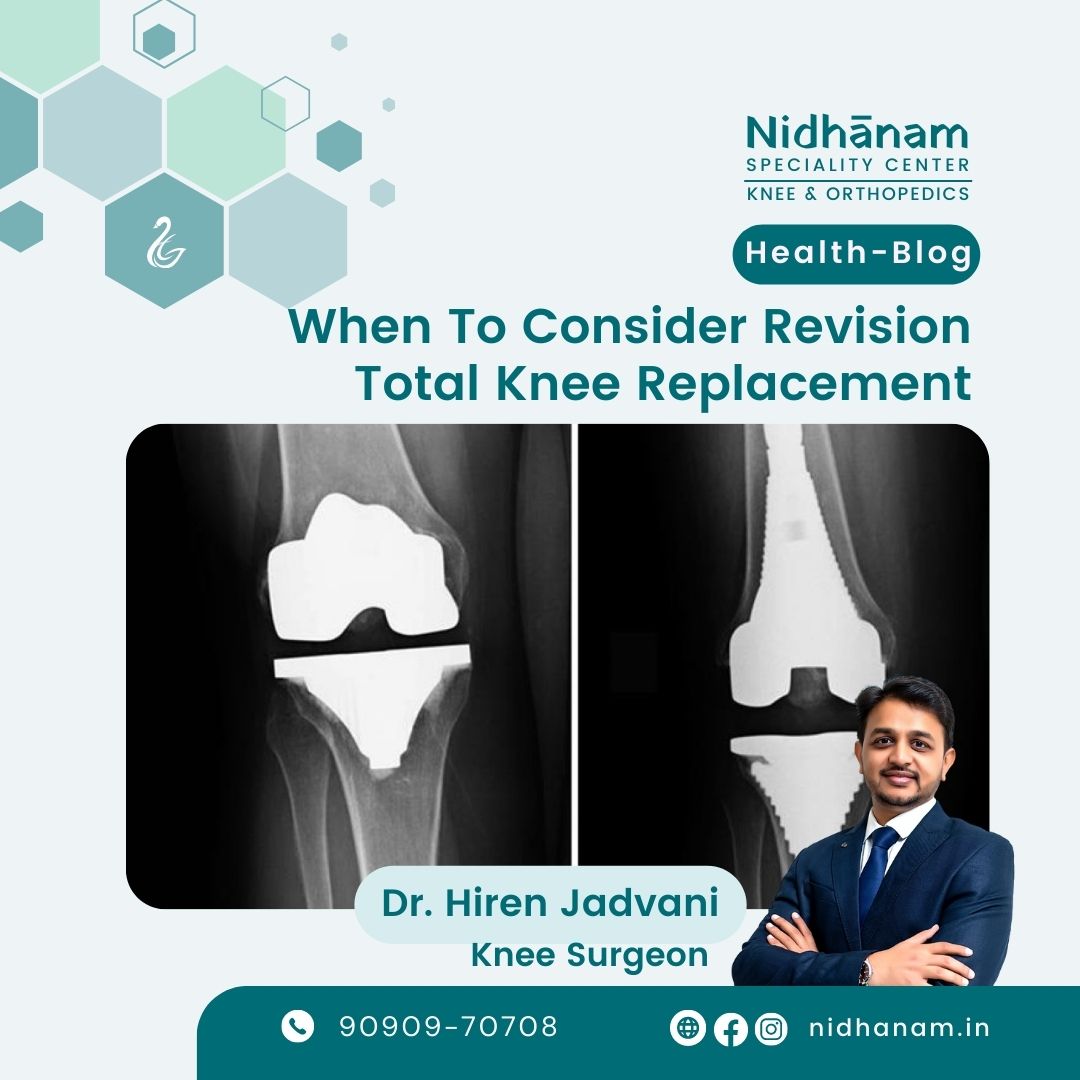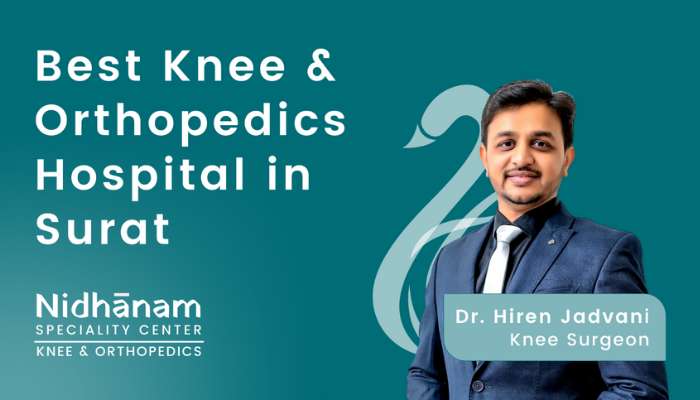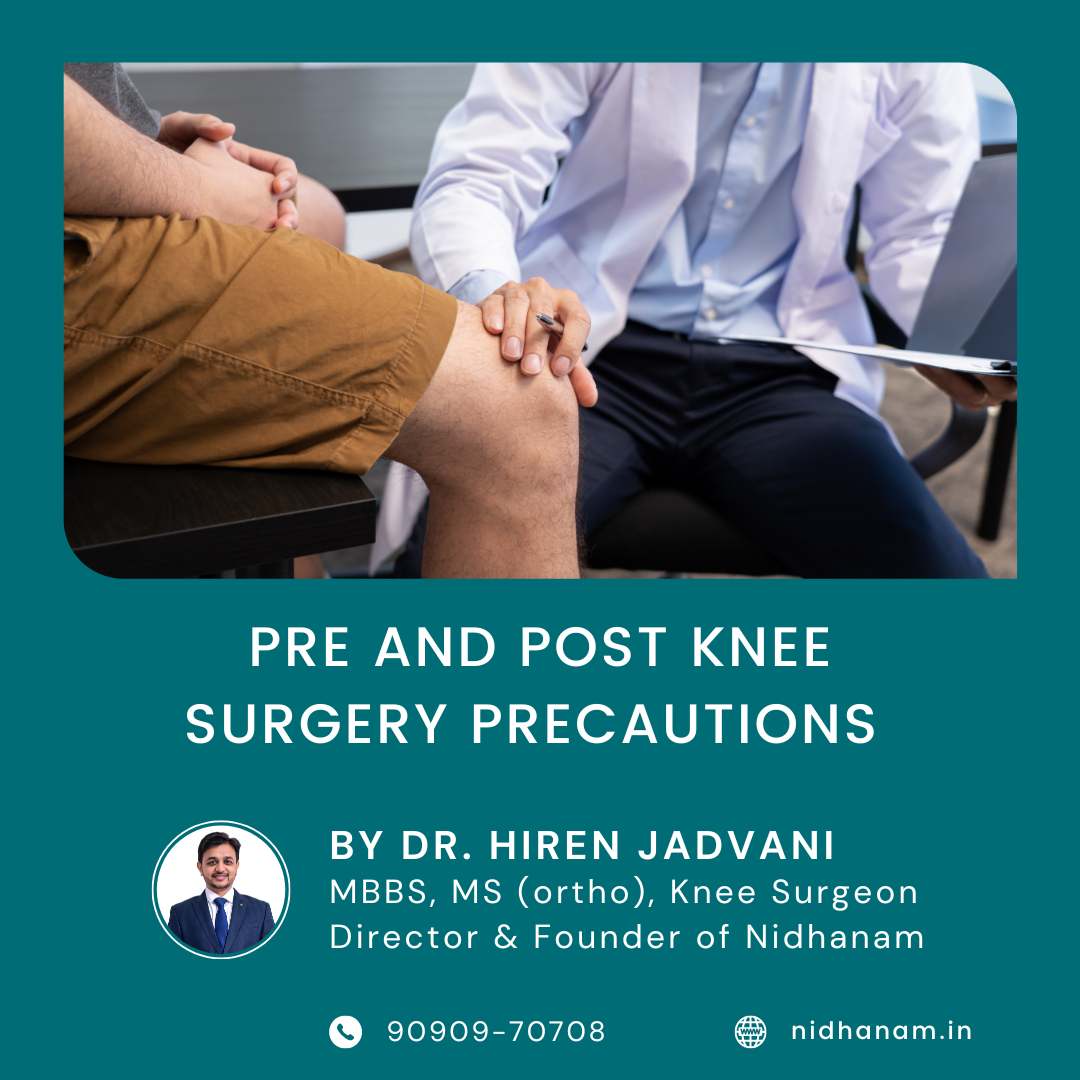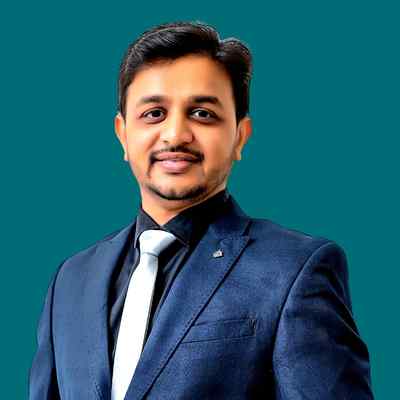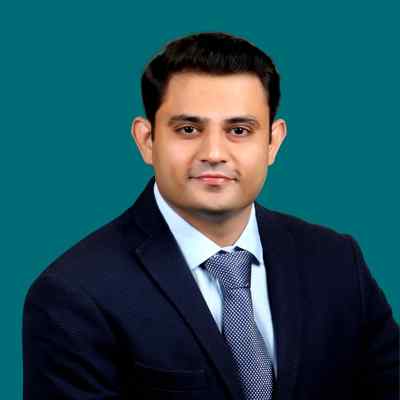Blogs
Orthopedic Blog
Read the latest orthopedic blogs by Dr. Hiren Jadvani on various orthopedic related topics, new procedures, new techniques, prevention and many more. Dr. Hiren Jadvani is the director and founder of Nidhanam Orthopedics Speciality Center. His vision to bring the best orthopedic specialist doctors together to provide comprehensive treatment to the people of Surat gave birth to our specialty center.
Dr. Avantika Gopani of Nidhanam Orthopedics Center is the best physiotherapist in Surat where she collaborates with renowned knee surgeon, Dr. Hiren Jadvani for post joint replacement physiotherapy services in surat.
Nidhanam Orthopedics, under the leadership of Dr. Hiren Jadvani, provides a holistic approach to arthritis treatment. Contact us to book appointment for arthritis management.
Dr. Hiren Jadvani is a renowned knee doctor in Surat. Let’s know about how to avoid knee injury from knee specialist himself.
Dr. Hiren Jadvani is the best knee replacement surgeon in Surat at Nidhanam Speciality Center for Knee & Orthopedics.
Dr. Hiren Jadvani of Nidhanam Speciality Orthopedic Center is a renowned knee surgeon of Surat specialized in Revision Total Knee Replacement Surgery.
– Nidhanam Speciality Center for Knee & Orthopedics now open in surat. Best Knee Hospital in Surat, Gujarat.
Dr. Hiren Jadvani of Nidhanam Orthopedics Center, Surat has explained pre and post Knee Surgery precautions in details in this blog.
Repair. Replace. Revive.
Expert Doctors
Frequently Asked Questions
Arthroscopic surgery is a type of minimally invasive surgery that requires only small incisions thanks to a device known as an arthroscope. It lets your surgeon see inside the joints and view the specific area being worked on during surgery without the need for large incisions.
Arthroplasty is the reconstruction or replacement of a joint such as a shoulder, elbow, wrist, hip, knee or ankle. Depending on the extent of the joint injury or condition, you may need partial or total arthroplasty.
Like human bone, the prosthetic devices used in joint replacement surgery can become damaged or simply wear out. If you’ve previously had partial or total joint replacement surgery but need to have the joint operated on again, it’s considered revision surgery.
Advances in medical technologies — including the prosthetic materials used in total and partial hip, knee, elbow and shoulder joints — continue to extend the life expectancy of artificial joints. Generally speaking, today’s prosthetic devices can last upwards of 15-20 years. Factors that can impact the durability of prosthetics include your activity level, overall health, weight and whether you have arthritis.
While the goal of surgery is to restore function and get you moving without pain, there are usually some limitations after orthopedic surgery. Talk to your orthopedic surgeon about realistic expectations after surgery.
There’s no one-size-fits-all answer for deciding when to have surgery. Your orthopedic surgeon or other doctors will help you determine when surgery is the most appropriate next step. Key considerations include whether you’re in pain, if you’re experiencing instability or decreased mobility, and whether the injury or condition is affecting your quality of life.
For first consult, patient will be evaluated with detailed history and clinical examination before he/she is advised suitable imaging. Additionally, it will be helpful to bring along previous X-rays and scans especially related to fractures and for comparative assessment.
A fracture is a broken bone. A sprain occurs when you injure the ligaments that connect your bones.
For most of the patients, average stay after surgery is between 2-5 days, depending on the type of surgery. Discharge is planned when medical condition is stable, pain is adequately controlled with oral medications, able to eat and urinate and when physical and occupational goals are successfully met. Bracing, rehabilitation and after surgery instructions will be provided to the patient at discharge.
Following discharge after surgery, you are required to contact the physiotherapist who will help in optimum post-operative recovery. At Nidhanam Orthopedics Speciality Center we have consultant physiotherapist and rehab expert in our team of doctors to ensure smooth rehabilitation and recovery.

